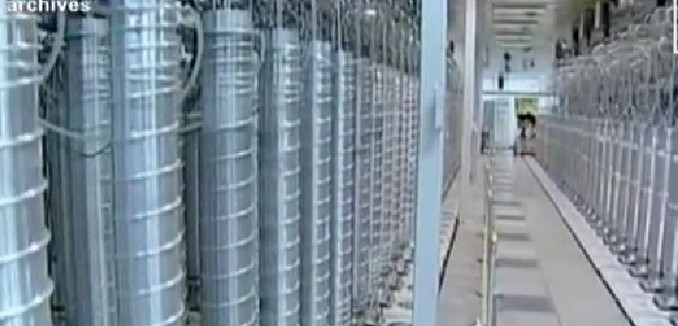The United States and its partners must re-establish strategic deterrence in order to ensure that the emerging nuclear deal with Iran preserves regional security, argued an analysis written Monday by Gen. (ret) Michael Herzog, an international fellow at the Washington Institute for Near East Policy.
After noting that elements of the deal leave Iran with the ability to enrich uranium and, thus, be a nuclear threshold state, Herzog outlined the steps the P5+1 nations must take to ensure that Iran never crosses that threshold.
The six world powers negotiating with Iran should insist on certain critical elements: anytime, anywhere inspection and verification; irreversible conversion of excess enriched material in Iran; significant restrictions on research and development relating to centrifuges; a clear and binding pathway to resolving concerns expressed by international inspectors about the possible military dimensions of Iran’s programme. Sanctions relief should be phased over years and be conditional on Tehran meeting these requirements.
But that is not enough. The key to stopping Iran from crossing the threshold at short notice is deterrence. Most of all, the U.S. needs to make clear there will be punishing consequences for violations. In addition, the international community should formally affirm its determination to prevent Iran from acquiring enough fissile material for a weapon, even after the restrictions lapse. The U.S. should also adopt a tough stance against Iran’s hegemonic regional ambitions to reassure traditional allies who have lost faith in American political will to guarantee their security. …
Viewed from the region, one thing seems obvious: the best chance to prevent Iran from acquiring the bomb comes if the U.S. reasserts its willingness to use military force. While Ali Khamenei, Iran’s supreme leader, has had no qualms stating his red lines, it has not been clear what the deal-breakers would be for those negotiating with him. Yet if such limits were set, they could be insisted upon. With the pressure of sanctions and a U.S.-led posture of deterrence, the western negotiators could credibly make clear that they are resolute, patient and will not accept a deal if their terms are not met.
Herzog ended by warning that the West’s failure to “stand firm” will leave Israel vulnerable to the explicit threats made by Iran.
[Photo: euronews (in English) / YouTube ]




